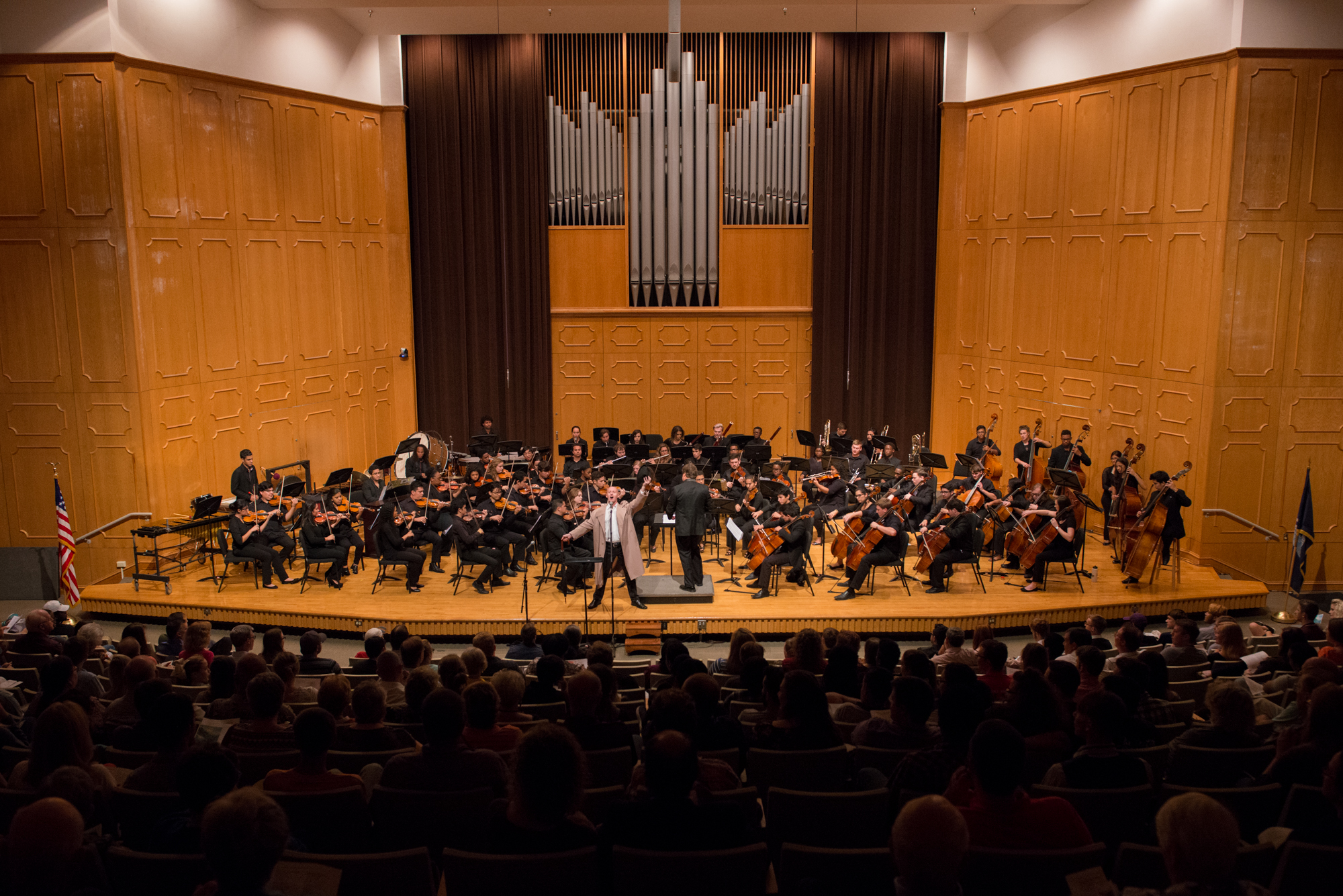NATCHITOCHES – The Natchitoches-Northwestern Symphony Orchestra will present a concert on Tuesday, April 27 at 7 p.m. at the Fleur de Lis Stage on the Downtown Riverbank in Natchitoches. Douglas Bakenhus is music director of the Natchitoches-Northwestern Symphony Orchestra. Juan Pablo Paternina Paez is the graduate assistant conductor.
Masks are required and social distancing should be observed. In case of inclement weather, the concert will be held in Magale Recital Hall.
The orchestra will present a patriotic concert titled “We Shall Overcome.”
After the National Anthem, the concert opens with the “National Emblem March” by E.E. Begley. The title is in reference to the opening melody which uses the first 12 notes of our National Anthem. John Philip Sousa once was asked “What are the three best marches for marching?” He mentioned two of his own, and then this march by Begley.
The next segment of the program concerns overcoming oppression and injustice, in keeping with the title of the concert. The orchestra will play Beethoven’s “Egmont Overture” which was written for a Goethe play about a man who defied a despotic ruler at the cost of his life.
Next on the program is “We Shall Overcome,” a gospel song that became associated with the civil rights movement in August of 1963 when Joan Baez, led a crowd of 300,000 in singing it at the Lincoln Memorial during A. Philip Randolph’s March on Washington. On March 31, 1968, four days before his assassination, Martin Luther King Jr. recited the words from “We Shall Overcome” in his final sermon. It was sung days later by over 50,000 attendees at his funeral.
The orchestra will play “Lift Every Voice and Sing,” based on a poem by NAACP leader James Weldon Johnson and then set to music by his brother John Rosamond Johnson in 1899. It was first performed in the Johnson’s hometown of Jacksonville, Florida, as part of a celebration of Lincoln’s Birthday on February 12, 1900, by a choir of 500 schoolchildren at the segregated Stanton School, where James Weldon Johnson was principal. Like “We Shall Overcome,” it has become an important anthem for civil rights in the U.S.
This will be followed by “A New Birth of Freedom” by Dallas-area composer Randol Bass. This piece was commissioned by the “President’s Own” United States Marine Band of Washington, D.C., in 2009, for the 200th anniversary of the birth of Abraham Lincoln. This narrative piece features the recitation of Lincoln’s famous “Gettysburg” address and will be recited by NSU theater and dance student Jesse McFarland.
Next is Ashokan Farewell by Jay Ungar, which was the main theme to Ken Burns’ PBS series “The Civil War.” Ungar runs a fiddle and folkdance camp in New York and composed this tune in 1984. Ken Burns heard the tune and thought its expression of longing would be perfect for his film.
The orchestra will play Scott Joplin’s “Ragtime Dance.” Joplin was born in Texarkana, Arkansas, in 1867. Known as the “King of Ragtime,” he is given credit for refining ragtime and lifting it up to a “classical” music status. This “classic ragtime” combined African-American folk music’s syncopation with 19th-century European romanticism. Ragtime later evolved, with other influences, into American Jazz.
The orchestra honors the sacrifices of U.S. armed forces currently and in the past with “Armed Forces Salute.” Veterans of the Army, Coast Guard, Marines, Air Force and Navy, will be asked to stand to be recognized for their service during their branch’s song.
This will be followed by a beautiful arrangement of “Amazing Grace.” This has been a year of “Dedication and Remembrance” by the Natchitoches-Northwestern Symphony and this performance will be our final dedication of the symphony-season to all of those who have passed away this year.
The ensemble will perform “America the Beautiful,” a hymn-tune by Samuel Ward which got its start from a poem written in 1893 by an English professor at Wellesley College, Massachusetts, Katherine Lee Bates. She composed these words on a train trip from the east coast to Colorado to teach summer school. Ward, a church organist and choir director, composed a hymn in 1882 called “O Mother Dear Jerusalem.” In 1910, Bates discovered that her poem fit Ward’s hymn-tune perfectly. Sadly, Ward died in 1903 so he would never know how famous his hymn would become.
Next on the program is “Sing-Along America” arranged by James Stephenson, where the audience will have a chance to participate by singing the tunes “Over There,” “Battle Hymn of the Republic,” “My Country ‘Tis of Thee,” “You’re a Grand Old Flag” and “When Johnny Comes Marching Home.” This will be followed by a rendition of “God Bless America,” with audience participation.
The program will conclude with Sousa’s “The Stars and Stripes Forever.”


